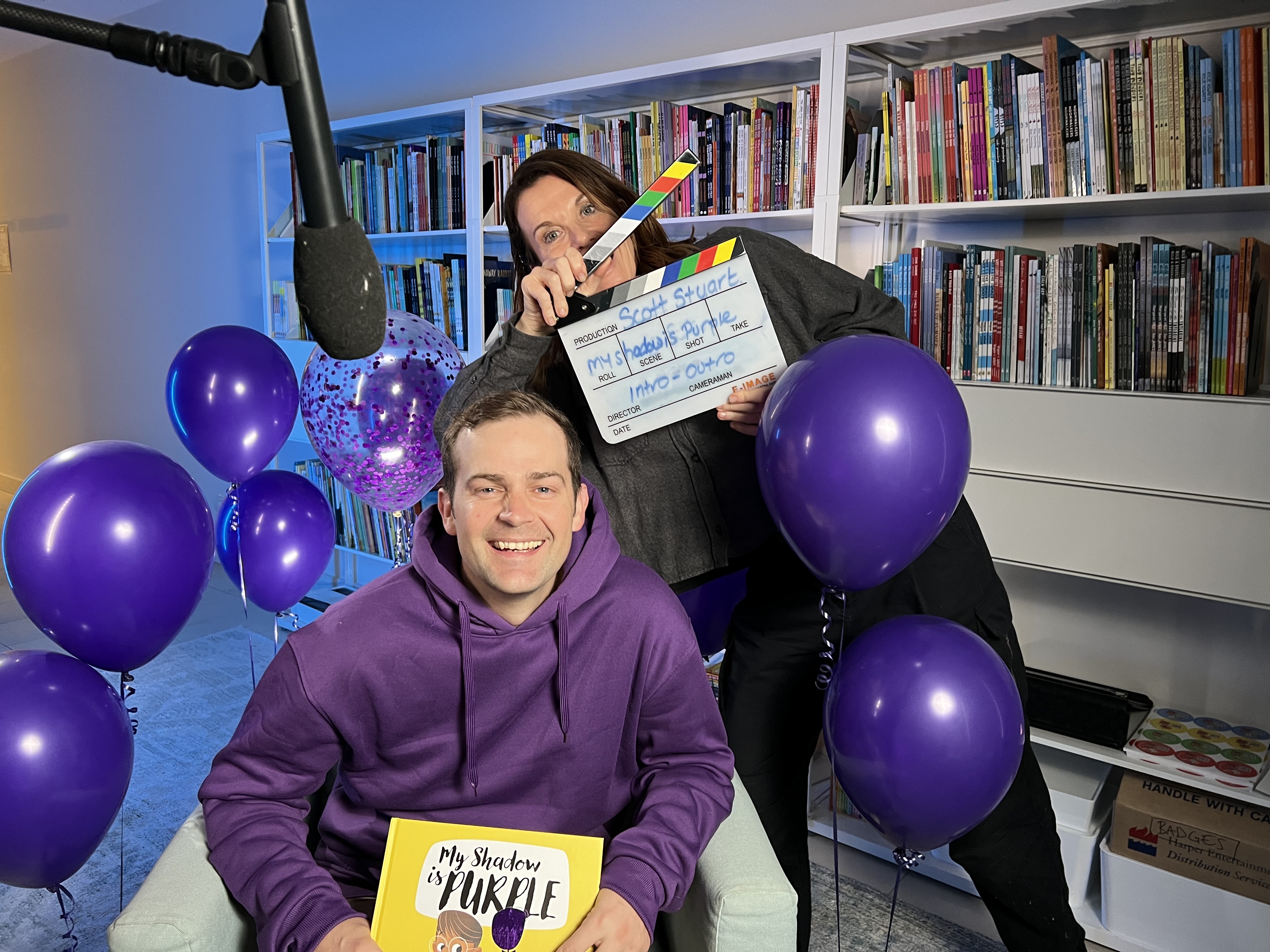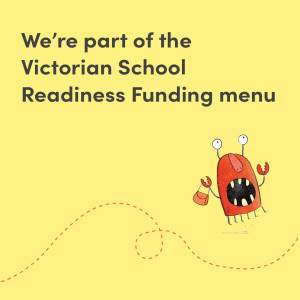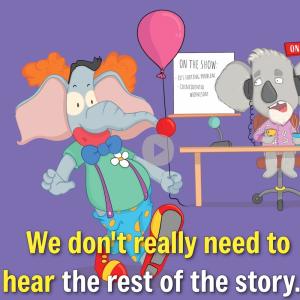Q&A with empowering author, Scott Stuart!
03 Sep 2024
 Scott Stuart is a Best-Selling Children’s Book Author, parent and social commentator who is committed to creating content that empowers young kids. Scott, regularly appears on podcasts and in media, speaking about parenting, discovering your authentic self and learning to accept yourself and your children. Read StoryBox Hub's Abby Blowes' interview with Scott to find out about why Scott came to write about books, which mainly focus on themes around inclusion, expressing your authentic self, and learning to accept yourself, Scott’s journey to becoming a full-time author, and ultimately what inspired Scott to write My Shadow is Purple.
Scott Stuart is a Best-Selling Children’s Book Author, parent and social commentator who is committed to creating content that empowers young kids. Scott, regularly appears on podcasts and in media, speaking about parenting, discovering your authentic self and learning to accept yourself and your children. Read StoryBox Hub's Abby Blowes' interview with Scott to find out about why Scott came to write about books, which mainly focus on themes around inclusion, expressing your authentic self, and learning to accept yourself, Scott’s journey to becoming a full-time author, and ultimately what inspired Scott to write My Shadow is Purple.
Scott, thank you for taking the time to speak with StoryBox, can you believe it’s been 4 years since your first video with your son, dressing up together as Elsa went viral? Can you tell us briefly about how your life has changed in those past 4+ years?
It's hard to believe it's been 4 years - time has flown so quickly! It's been a wild journey filled with an enormous amount of work, but the single biggest change is that it has allowed me to live my lifelong dream of being a full-time author. I honestly don't know if I would be able to do that without the support of the audience that has followed our journey, and I am immensely grateful for all of that support.
Most of your books for kids are themed around inclusion, expressing your authentic self, and learning to accept yourself, why do you think it’s important we continue to share stories about these themes?
Because some of my videos on social media have had significant reach, I have really come to understand that there truly are millions and millions and millions of people who simply do not want kids to see anything except a very narrow view of society. A great example being the teacher in the USA who was fired from her teaching position because she read My Shadow is Purple to her class. She asked her class which book she should read, the class chose my book, and then some parents complained because they thought an inclusive book was too "controversial" and got her fired. We know with certainty that excluding certain kinds of representation & communities from education and media increases the bigotry toward those communities, and also increases the likelihood of really tragic outcomes for that community. We know with certainty that more representation doesn't just reduce bigotry, it also increases the levels of empathy & inclusion across all kids, not just those who are under-represented in media. And the more stories we have that are inclusive, the more empathy and kindness we can see in the next generation.
Scott, you’ve said that you are an ‘advocate for joyful parenting and loving & accepting your children as they are.’ Can you tell us how your range of books can help children and parents in this area?
I would love all kids to feel loved for exactly who they are. And so my books are often examples of that love being placed into story. Whether it is challenging what it means to be a "real man", or discovering what colour shadow you may have, or learning that in the history of everything you are the very first you, my books are written so that kids feel loved and accepted, as they are.
Do you think we are doing enough as a society to help children feel universally accepted for who they are?
I think we all want our kids to be accepted and loved and celebrated for being themselves - however once we start getting into specifics of what they may look like, discomfort tends to arise. When my son was born, I was determined that he would always feel loved for being exactly himself and that my job was to help his spark shine brightly. And then he fell in love with Queen Elsa, and he wanted to dress up in Elsa costumes, and suddenly the discomfort that grew from my own childhood and my own insecurities and my own belief systems around masculinity suddenly were at odds with the idea of "allowing him to be & find himself". Ultimately, I worked through my own discomfort, but it would be just as easy to not allow him that freedom to explore, and by extension demand that nobody should be allowed to explore their identities. And that is what is happening in parts of society. We are in a moment where people & lawmakers are demanding that kids should only be allowed to be themselves if it fits within a certain framework, but if they are gender non-conforming, if they are part of the LGBTQIA+ community, if they are somehow "different" from what people perceive as "normal", then there is a problem. We just watched some women be mercilessly bullied and harassed in the Olympics because they weren't "feminine" enough. We need to be doing far more to make kids understand that they are loved, as they are. That they have worth, as they are.
StoryBox is thrilled to be releasing your hugely popular book, ‘My Shadow is Purple’, can you tell us what inspired you to write this?
When my book My Shadow is Pink was becoming popular, I was doing a lot of visits to schools over Zoom (the COVID era!), and generally when I am reading that book (which is about a young boy who, despite his entire family having blue shadows, instead has a pink shadow), after the reading I will ask the kids what colour they think their shadows might be. And the answers are always fantastic - from "shiny gold with a unicorn horn", to "it's a shadow - it's black". The kids inherently understand that their shadows could be anything at all. However during one session, instead of me doing the reading, I was listening in on the teacher doing the reading instead. And when they finished the book they asked the same question of the kids, except for one small difference - they asked "what colour are your shadows, are they blue or are they pink?". And immediately every kid, instead of the huge variety of shadows they usually come up with, placed themselves into either blue or pink. That to me was the moment that I knew that I needed to create a story that showed that you can exist outside that binary of blue or pink, and I'm so happy with how My Shadow is Purple has been received since.
Finally, Scott, as an author, parent, podcaster, advocate and so much more, why do you think writing and sharing stories is so important for current and future generations?
Stories are how we make sense of this human experience that we we are all collectively having. They are what we turn to during heartbreak and grief to answer the question "has anybody gotten through this before?" They help us know we are not alone, that we are understood, that there is hope. Storytelling is needed, whether it is a published book, or a movie, or a story shared with a child over breakfast - storytelling helps us find ourselves, understand ourselves, and ultimately helps us navigate this thing called life.
Thanks Scott!





